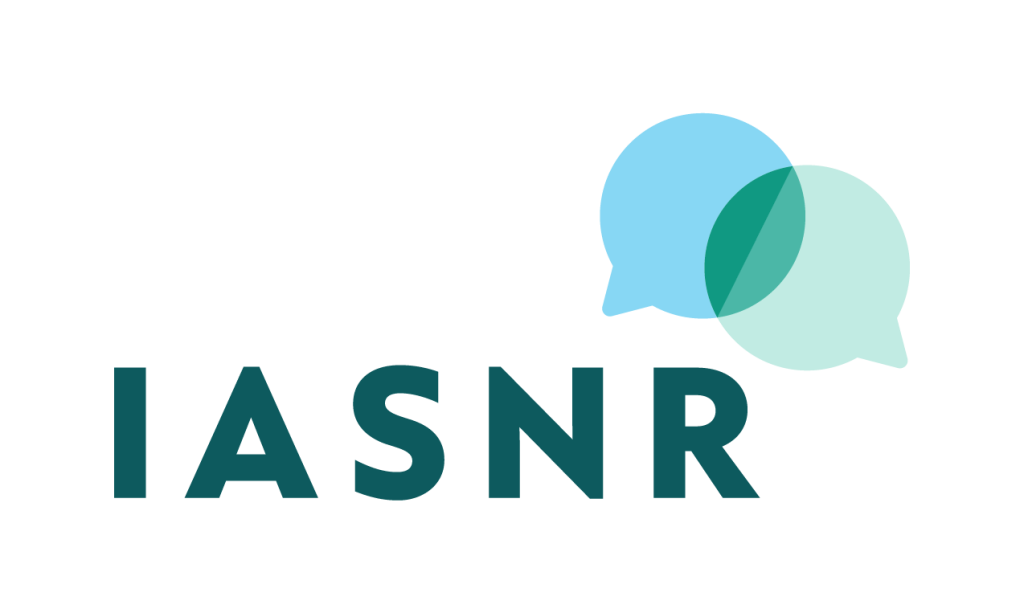Editorial Team: Emily Huff (Michigan State University, SNR Co-EIC), Kristin Floress (USDA Forest Service – Co-EIC), Michelle Baumflek (USDA Forest Service), Ryan Comfort (Indiana University), David Flores (USDA Forest Service), Mae Davenport (University of Minnesota), Caleb Hickman (Eastern Band of Cherokee Indians, Office of Fisheries and Wildlife Management), Erin Seekamp (NC State University)
Summary:
This special issue focuses on the ways in which knowledge is co-produced by two or more people/groups who may have different knowledge systems, experiences, and ways of generating, sharing, and using knowledge. Knowledge co-production has been defined, in a sustainability context, as:
‘Iterative and collaborative processes involving diverse types of expertise, knowledge and actors to produce context-specific knowledge and pathways towards a sustainable future.’ (Norström et al. 2020).
This definition is based upon four principles, namely that co-production processes are usually 1) context-specific, 2) pluralistic, 3) goal-oriented, and 4) interactive. Because they are context-specific, they situate the process in a particular context or place and may not be easily generalizable beyond the context (though this does not preclude methods or ontologies that can be predictive beyond the context). Pluralistic means that the study explicitly recognizes and documents the multiple ways of knowing and doing. Goal-oriented implies that those cooperating are doing so to build knowledge together through clearly articulated shared goals that they may have different ways of achieving. Finally, the interactive nature of knowledge co-production allows for ongoing learning among actors and is a process of active engagement.
Knowledge co-production has been used in many natural resource domains including agriculture conservation behavior, wildlife conservation, forestry, and many others (e.g. Berkes et al. 2000, Hauser et al. 2021, Robinson et al. 2021). In this special issue, we aim to publish articles that help others who wish to engage in these processes by illustrating successes and challenges, and providing practical or theoretical insight for best practices. We encourage critiques of knowledge co-production and also recommend that knowledge co-production is defined and operationalized in submissions.
Special Considerations: Based on feedback from Indigenous scholars and practitioners, we will not strictly adhere to the requirements of our ‘article types’ for processing submissions. We recognize that different ways of knowing and different definitions for what constitutes ‘knowledge’ may not lend themselves to the western format our journal is based upon. Thus, when submitting articles, you may select whichever article type most closely matches your submission. There will be no formal word count limit on articles, but we recommend adhering to the standard 9,000 word article limit when possible.
Additional Article review criteria:
- Clearly convey how knowledges were engaged throughout the process
Has the proper voice for the community been engaged (or a process identified to ensure that the proper voice was found) - Are sources/partners viewed as credible authorities, as defined by the community for which they are speaking (authors provide rigorous justification for their methods, sources, recruitments, partnerships) – not just who is readily available.
- Experiential knowledge – how this medium is conveyed?
- Are traditional knowledge holders cited or credited in some fashion
- Multimedia and non-text based submissions are welcome
- Ethical review – authors should reference IRB or equivalent for whatever community is studied or participating. We will consider the following, if applicable:
- Local permits
- Community norms and decorum
- Ethical boards, tribal IRB (see Canadian Journal of Zoology) or tribal council, cultural committees consulted prior to engaging in process
- Was purpose beneficial to community
- Transparency
- Data sovereignty- including CARE principles (also see Jennings et al. 2023)
- Intellectual property rights and associated MOUs
- Consideration of groups that haven’t had the capacity or resources to oversee and govern research processes
We recommend all submissions involving Indigenous communities to consider Gregory Younging’s Elements of Indigenous Style: A guide for writing by and about indigenous people, in addition to the SNR style guide. We also require any articles including data from Tribal, Native Hawaiian, Alaska Native, or First Nations communities to adhere to Tribal data policies.
Please consider Tribal data policies when drafting your articles.
Timeline
- April 1, 2024: Please send abstracts of potential submissions to [email protected] and [email protected] with the subject line: SNR KP Special Issue Submission
- May 1, 2024: Notice given to abstracts that should move forward with submission
- October 1, 2024: Submissions close and all papers undergo normal peer review process.
- Special Issue to be published in 2025
Publishing/ Open Access
In an effort to honor data sovereignty and non-academic partner article access, we will work with the publisher to provide Free Access to articles in this Special Issue.
Berkes, F., Colding, J., and C. Folke. 2000. Rediscovery of Traditional Ecological Knowledge as Adaptive Management. Ecological Applications 10(5): 1251-1262.
Hauser, D.D., Whiting, A.V., Mahoney, A.R., Goodwin, J., Harris, C., Schaeffer, R.J., Schaeffer, R., Laxague, N.J., Subramaniam, A., Witte, C.R. and Betcher, S., 2021. Co-production of knowledge reveals loss of Indigenous hunting opportunities in the face of accelerating Arctic climate change. Environmental Research Letters 16(9):095003.
Jennings, L., Anderson, T., Martinez, A., Sterling, R., David Chavez, R., Garba, I., Hudson, M., Garrison, N., and Russo Carrol, S. 2023. Applying the ‘CARE Principles for Indigenous Data Governance’ to ecology and biodiversity research. Nature Ecology and Evolution 7, 1547–1551 (2023). https://doi.org/10.1038/s41559-023-02161-2
Robinson, C.J., Macdonald, J.M., Douglas, M., Perry, J., Setterfield, S., Cooper, D., Lee, M., Nadji, J., Nadji, S., Nayinggul, A. and Nayinggul, A., 2021. Using knowledge to care for country: Indigenous-led evaluations of research to adaptively co-manage Kakadu National Park, Australia. Sustainability Science 1-14.
Norström, A.V., Cvitanovic, C., Löf, M.F. et al. 2020. Principles for knowledge co-production in sustainability research. Nat Sustain 3, 182–190. https://doi.org/10.1038/s41893-019-0448-2
